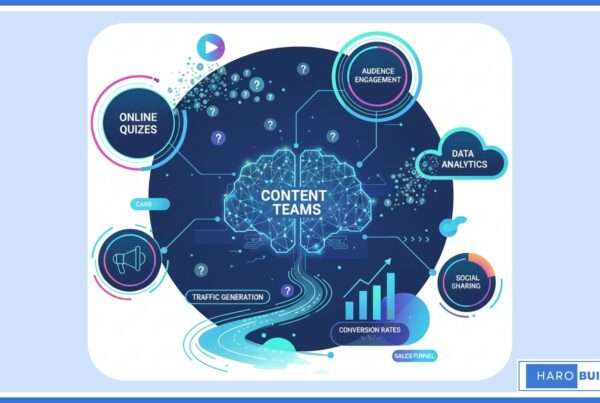
Many businesses struggle with effectively reaching their target audience in the digital age. Traditional marketing methods often prove insufficient for today’s digital landscape. What is digital marketing? It encompasses online strategies such as email campaigns, video marketing, and digital ads to engage potential customers.
As digital marketing continues to evolve, understanding its various types and strategies becomes crucial for success. This article offers a detailed guide on what is digital marketing, exploring different techniques and strategies to enhance your marketing efforts and drive business growth.
What is Digital Marketing?
Digital marketing involves the use of digital channels to promote products or services. Key forms include content marketing, email marketing, and social media marketing. It leverages online platforms such as websites and social media to reach target audiences. As the field grows, new roles emerge for instance, a virtual digital marketing assistant represents how support functions can be adapted to digital environments, reflecting the broader shift toward remote and tech-enabled work. Digital advertising, including video marketing and search engine marketing, plays a crucial role. Campaigns are often tailored to specific digital marketing channels to maximize effectiveness. This approach allows for measurable results through analytics, making it a versatile tool for modern marketing.
Importance of Digital Marketing
Digital marketing is crucial for reaching a wide audience effectively and efficiently. It enables precise targeting through various digital channels like social media and email. Companies can track performance using analytics to optimize their strategies continuously. The ability to tailor marketing campaigns for specific audiences ensures higher engagement and conversion rates. Moreover, digital marketing often offers a cost-effective alternative to traditional marketing methods, providing significant benefits in terms of return on investment. In specialized sectors such as chemicals, these advantages are maximized by working with a Marketing Agency for Chemical Companies that understands the unique needs of the industry.
The Role of a Digital Marketer:
A digital marketer manages and executes online marketing strategies across various platforms. They focus on content marketing, email campaigns, and social media interactions. Their responsibilities include optimizing digital channels and analyzing campaign performance. They are responsible for social media reporting, tracking key metrics to assess engagement and adjust strategies accordingly.
Essential skills include knowledge of marketing tactics, analytics, and digital advertising. Effective digital marketers stay updated with industry trends and adapt strategies to achieve marketing goals.
Strategies and Types of Digital Marketing
Content Marketing:
Content marketing focuses on creating and distributing valuable content to attract and engage an audience. It involves various forms, including blog posts, articles, infographics, and videos. This strategy aims to provide relevant information that addresses the needs and interests of the target audience. Effective content marketing enhances brand visibility and builds trust with potential customers. However, for this strategy to be successful you must explore the content that your competitors publish. And the best thing is, you don’t even have to do it all manually, you can simply use a web crawler and implement a fast datacenter proxy service to efficiently and safely gather data from competitor websites without getting blocked or detected. An SEO Magnifier AI article rewriter can help refine and restructure gathered content, ensuring uniqueness while maintaining the original message’s clarity and relevance. Key characteristics of content marketing include:
- Consistent content creation.
- Targeted distribution.
- Value-driven approach.
Email Marketing:
Email marketing involves sending targeted messages directly to users’ inboxes to promote products or services. It remains a powerful tool for building customer relationships and driving conversions. Campaigns can include newsletters, promotional offers, and product updates. Personalization and segmentation enhance the effectiveness of email marketing efforts. In today’s digital age, you can use an email signature generator to create a unique email signature within seconds. Effective email marketing practices involve:
- Crafting compelling subject lines.
- Using segmentation for targeted messages.
- Analyzing campaign performance.
Social Media Marketing:
Social media marketing leverages platforms like Facebook, Instagram, and Twitter to engage with audiences. It includes creating and sharing content, running ads, and interacting with users. Social media provides an opportunity for brands to build a community and drive engagement. Successful social media strategies focus on:
- Consistent posting and engagement.
- Utilizing paid social ads.
- Analyzing metrics for optimization.
Affiliate Marketing:
Affiliate marketing involves partnering with affiliates who promote your products or services in exchange for a commission. Affiliates use their platforms to drive traffic and sales to your website. This form of marketing expands the reach and leverages the influence of others. Effective affiliate marketing requires:
- Choosing the right affiliates.
- Providing promotional materials.
- Using an affiliate management tool to track affiliate performance and optimize campaigns.
Search Engine Marketing (SEM):
Search Engine Marketing (SEM) includes strategies to increase a website’s visibility in search engine results through paid ads. SEM campaigns can target specific keywords to drive traffic and conversions. It complements Search Engine Optimization (SEO) efforts for enhanced search visibility. SEM strategies focus on:
- Keyword research and selection.
- Crafting effective ad copy.
- Monitoring and adjusting bids.
Mobile Marketing:
Mobile marketing targets users on their smartphones and tablets through various channels, including SMS, apps, and mobile websites. This type of marketing ensures messages and content are optimized for mobile devices. Effective mobile marketing enhances user experience and engagement. Key aspects of mobile marketing include:
- Optimizing for mobile devices.
- Using location-based targeting.
- Implementing responsive design.
Influencer Marketing:
Influencer marketing involves collaborating with individuals who have a significant following on social media or other platforms. Influencers promote products or services to their audience, leveraging their credibility and reach. This approach helps brands build trust and drive sales. Successful influencer marketing involves:
- Identifying relevant influencers.
- Developing authentic partnerships.
- Measuring campaign impact.
Video Marketing:
Video marketing uses video content to engage audiences and promote products or services. It can include product demonstrations, testimonials, and promotional videos. Video content is highly engaging and can be shared across various digital channels. Effective video marketing strategies include:
- Creating high-quality, engaging videos.
- Optimizing video content for SEO.
- Analyzing viewer engagement and feedback.
Digital Advertising:
Digital advertising encompasses various online ad formats, including display ads, search ads, and social media ads. It aims to drive traffic, increase brand awareness, and boost sales. Digital advertising provides measurable results and can be tailored to specific audiences. Key features of digital advertising include:
- Targeted ad placement.
- Performance tracking and analytics.
- Budget flexibility and optimization.
Benefits of Digital Marketing
- Enhanced Reach and Engagement: Digital marketing allows businesses to reach a global audience. Through various online channels, brands engage with potential customers more effectively and on a larger scale.
- Cost-Effectiveness and ROI: Digital marketing often costs less than traditional marketing methods. The ability to track and analyze performance helps businesses optimize their budget and achieve better returns on investment.
- Targeted Marketing: Digital marketing enables precise targeting based on demographics, interests, and behavior. This ensures that marketing efforts reach the right audience, improving conversion rates and campaign effectiveness.
- Real-Time Analytics: Marketers gain access to real-time data on campaign performance. Immediate insights allow for quick adjustments, enhancing the ability to respond to market changes and optimize strategies. To get valuable real estate market insights, you can use Zillow data extraction to support more targeted and timely marketing efforts.
- Increased Brand Visibility: Effective digital marketing strategies boost brand visibility across multiple online platforms. Increased visibility helps build brand recognition and attract a larger audience. A strong logo design plays a crucial role in this process by serving as a visual anchor that makes your brand easily identifiable.
What Is a Digital Marketing Agency?
A digital marketing agency specializes in managing online marketing efforts for various businesses. These agencies handle everything from creating digital marketing campaigns to managing social media. They use digital marketing channels like email, search engines, and social media to promote products and services effectively.
A digital marketing agency also leverages marketing automation and analytics to track campaign performance. Their expertise helps in developing tailored marketing strategies that meet the specific goals of their clients. By utilizing digital advertising and other tactics, they enhance a business’s online presence and reach.
What Is SEO in Digital Marketing?
SEO, or Search Engine Optimization, is a crucial form of digital marketing. It involves optimizing a website to rank higher in search engine results. This optimization includes improving website content, structure, and technical elements. Effective SEO increases a site’s visibility, attracting more organic traffic. Key aspects of SEO include keyword research, on-page optimization, and link building.
By enhancing these elements, SEO improves a website’s relevance and authority, ultimately driving more targeted visitors. It aligns digital marketing strategies with search engine algorithms to boost online presence and achieve marketing goals.
What Is Internet Marketing?
Internet marketing involves promoting products and services using various digital channels. Techniques such as email marketing campaigns, digital ads, and video marketing are commonly utilized. Moreover, it integrates different forms of marketing, including digital media and content marketing, to maximize effectiveness.
One of the key aspects of digital marketing is its ability to reach specific target audiences, while simultaneously analyzing marketing analytics to measure success. As it has become increasingly essential, it not only provides valuable insights into marketing goals but also helps refine strategies. Consequently, its role in the digital world continues to grow significantly.
How Can You Become a Digital Marketer?
To become a digital marketer, start by acquiring essential digital marketing skills. Pursue relevant education or training programs that focus on digital marketing techniques and strategies. Gain practical experience by working on marketing projects or internships. Moreover, use mentor matching programs to connect with experienced professionals in the digital marketing field.
Building a solid portfolio and networking with industry professionals can help advance your career. Digital marketers need to stay updated with trends and innovations to remain competitive. Effective digital marketing strategies are crucial for career development and success.
Here are some top 10 digital marketing trends for 2024.
Conclusion
Effective business strategies in today’s digital landscape often hinge on understanding what is digital marketing. This approach encompasses various online methods such as email campaigns, video marketing, and digital advertising. By leveraging these digital marketing strategies, businesses can expand their reach and drive engagement. As you implement these techniques, evaluate which ones align best with your specific goals. How have you utilized digital marketing to achieve success in your business?
FAQs
1. How do I get started with digital marketing?
Begin by defining your goals, selecting appropriate digital marketing channels, and creating a detailed strategy.
2. What skills are needed for digital marketing?
Essential skills include SEO, content creation, social media management, and data analysis.
3. What is the role of marketing analytics?
Marketing analytics helps track performance, measure success, and refine strategies based on data insights.
4. Can digital marketing replace traditional marketing?
While it offers new opportunities, traditional marketing can still complement digital efforts for a well-rounded approach.
5. How can digital marketing help my business?
It can increase brand visibility, attract potential customers, and drive sales through targeted online strategies.



